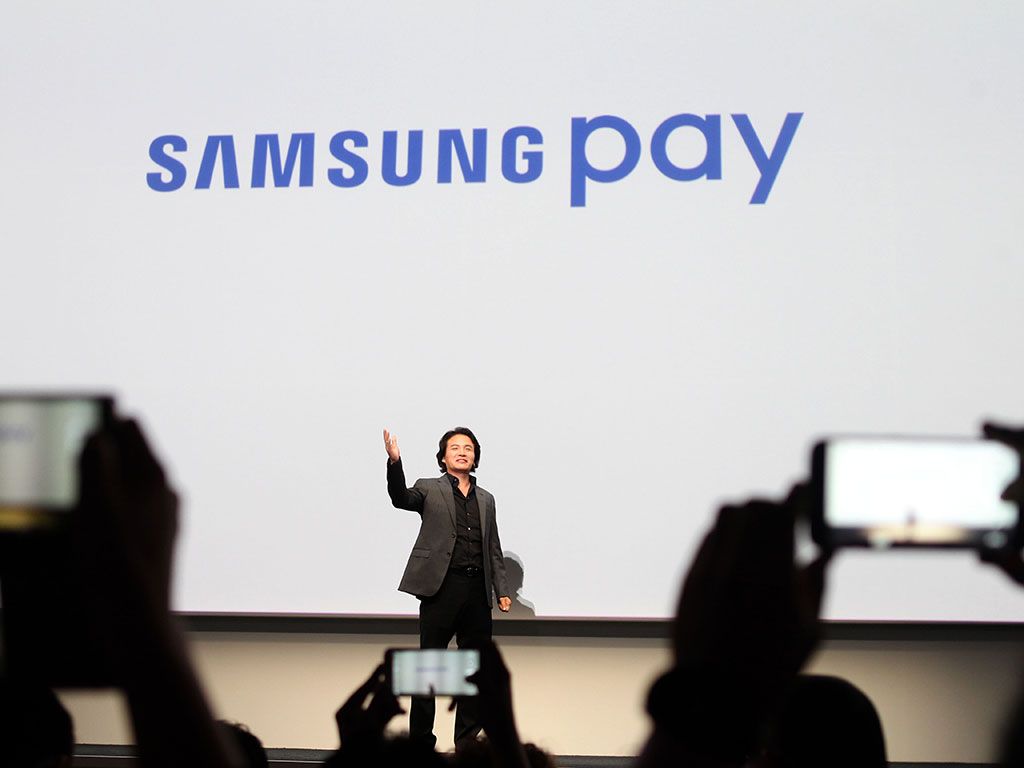Samsung Pay opens – a rival to Apple Pay
Samsung has released its own mobile payment service to rival Apple Pay, and believes that its expansive coverage could lend it the upper hand

Injong Rhee, Executive Vice President and Head of Samsung Pay, speaks passionately about the product at an event
Samsung has launched its own mobile wallet service to rival Apple Pay in South Korea, ahead of its general release, with a view to establishing mobile handsets rather than cards as the dominant form of payment. The Samsung Pay service, which trails the release of its closest rival by a year, is compatible with a far greater number of payment terminals and sources at the company believe it could transform the role of smartphones.
For the time being, the appeal of mobile payment services is unclear
Unlike Apple and Android Pay, which work only in areas where NFC terminals are switched on, Samsung Pay is compatible with the vast majority of credit card readers, and uses magnetic strip recognition to make use of “tap-and-go” technology. As with the competition, transactions will be limited to small amounts, though Samsung will hope to increase the cap and, in doing so, speed up the technology’s adoption.
“Samsung Pay will reinvent how people pay for goods and services and transform how they use their smartphones,” said JK Shin, CEO and Head of IT & Mobile Communications Division at Samsung Electronics, in a press release. “The secure and simple payment process, coupled with our robust partner network, makes Samsung Pay a truly game-changing service that will bring value to consumers and our partners in the ecosystem.”
The service will be available to use in the US from September 28 onwards, though it’s uncertain which companies will offer support. AT&T, Sprint and T-Mobile have subscribed to the service so far, and many more could follow should the system catch on among consumers.
For the time being, the appeal of mobile payment services is unclear, though Samsung Pay does away with perhaps the biggest barrier to adoption simply by extending its compatibility to “tap-and-go” terminals. Samsung has said that the service could be adopted at some 30 million merchant locations worldwide, making it the only service of its kind to boast near universal appeal.













